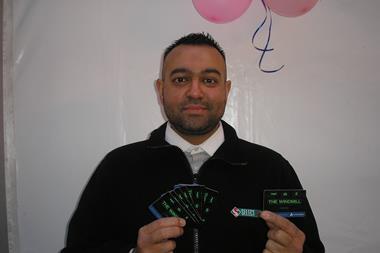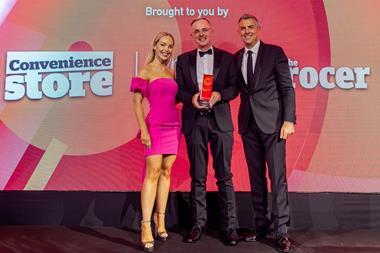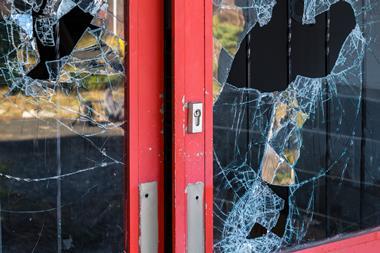In a competitive market, ensuring customer loyalty is more important than ever. Our C-Store Champions and P&G’s John Drake give their tips
Binny Amin, Londis Blean Village, near Canterbury, Kent
Binny uses social media to encourage shoppers to interact with the store and build loyalty
Donna Morgan, Brownlies of Biggar Best-One, South Lanarkshire
Customer service and staff training is a key focus for Donna in keeping customers coming back
Andrew Thornton, Budgens, Belsize Park, London
Andrew believes that maintaining high standards throughout the store give shoppers the reasons they need to return
John Drake, head of emerging channels at P&G
John’s role covers sales, business development and strategic direction within convenience. P&G brands include Gillette, Fairy and Ariel.
What makes a loyal customer and who would you say are your most loyal?
Binny: Regular shoppers, those who recommend us, interact on our social media and share our posts on Facebook are our most loyal customers. We have a good mixture of loyal and regular customers throughout the day; we see a lot of afternoon customers, usually mums with their children getting snacks or food for dinner.
Donna: Loyalty is a customer who comes into the store regularly, uses us as their main shop and interacts with the staff. We have a variety of loyal customers; we’ve built up our morning trade so we especially see a lot of workers coming in to get breakfast, lunch and newspapers.
Andrew: They are customers who really like our shop and come back often. We see loyal customers at all times of the day; it’s the different profiles we see at different times. Those who are retired tend to shop more during the day, and workers we see often in the mornings or on their lunch breaks.
What do you think are the best ways to secure customer loyalty?
Binny: 100% good customer service as it helps to retain customers, along with keeping a tidy store and highlighting offers.
Donna: We go the extra mile; if we don’t have the product in store we’ll source it for the customer. Last week a gentleman came in asking for Panko breadcrumbs and we didn’t have them, so I made sure the next time he came in we had them. He was delighted.
Andrew: By doing everything really well - it’s as simple and as complex as that. Give the customers a pleasant experience and make sure there’s a good energy going around the shop.
John: It’s all about making sure you have the correct propositions for your customers, whether that’s the right price point or the right format. Many convenience shoppers visit their local store on top-up missions, and store owners should make sure they are offering all the best-selling brands you would expect to see at leading retail stores.
Do you measure or monitor loyalty in any way?
Binny: We track customers coming into store via a database where we keep their emails and telephone numbers. We also ask people to check in on Facebook or add a picture of themselves in the store. Not only do we know they’ve been in, but they help to promote us.
Donna: Not really, but it’s something we’d think about getting if Best-one software was available. We run regular beer and wine tastings. Soon we’ll be setting up a club for these people so we can email them with special offers; this is a way of monitoring their loyalty.
Andrew: No, we are unable to do that and it isn’t currently one of our main areas of focus.
How has customer loyalty changed in recent years, and has it become more difficult to retain?
Binny: Loyalty goes up and down as customers’ shopping habits change. It’s been particularly hard to retain loyalty during the recession as people began really searching for the cheapest option.
Donna: People do shop around a lot more and tend to look for more offers. We have a shopping delivery service for the local customers - our furthest is about 10 miles away - and this helps to keep their loyalty as they know they can rely on us.
Andrew: People’s price perceptions have changed and so have prices in the food industry. We are an independent store, which means we are slightly more expensive than other stores, so we have to work hard to be an all-round great shop to retain customer loyalty.
John: It’s an incredibly tough environment right now. Consumers are constantly looking for a value fix and the discounters are upping their game in delivering exactly that. This is why it’s so important for us to work closely with convenience retailers to ensure they have the right sort of execution they need to be competitive.
What are the most important things retailers need to do to ensure that customers return regularly?
Binny: Have a good range of niche products; we have customers who come to the store just to buy them. We stock American products, sweets, ales, special ice creams and much more. We also have a take-away service; we make hot curries and pizzas to order.
Donna: Retailers need to get their entire offering right. A clean store, an extensive range of products and friendly staff are key. Some of the elderly customers enjoy a conversation when they come into the store; it could be their only interaction all day.
Andrew: Have a tidy store, full shelves and efficient staff on the tills and on the floor area.
John: Availability and choice of product are vital factors for shoppers, so making sure shelves are stocked will prevent a loss in sales and help to retain the regulars. Building a rapport with the customer is vital; listen to them, understand their needs and then ensure you are delivering against these needs as this will help to build trust.
Do you reward customer loyalty in any way?
Binny: We offer loyalty cards and in the next few weeks we will be introducing discount cards. If a customer spends a certain amount they can get £5-£10 off their shop.
Donna: We have Best-one loyalty cards; every pound spent gains the customer points.
Andrew: We do not have a loyalty card scheme. However, we do run promotions and competitions commonly around Christmas, using social media to enhance engagement.
How much focus do you put on keeping regular customers happy compared with trying to attract new customers?
Binny: We try to keep all our customers happy. I tend to focus on attracting new customers while the store managers and other staff focus on keeping the regular customers happy.
Donna: We always want to attract new customers. There are new houses being built in the area and we drop leaflets through their doors to advertise ourselves and welcome them to the store. But that doesn’t mean our regular customers are any less important.
Andrew: We look to do both. We want to hold on to our customers and attract new ones, which is why it is so important to have a great store.
What role do staff play in retaining the loyalty of customers?
Binny: The staff are the most important people. They must be polite and genuine, which is why we have a very strict training scheme. We use an online program as well as further in-store training. We buddy up new staff with other team members so they can learn from each other.
Donna: They are very important; they are the ones speaking to the customers. A lot of our staff have been with us for a long time. They build relationships with the customers and the customers come back to see them. We train our new staff using a Best-one online training package.
Andrew: Staff are absolutely critical. The store could be brilliant, yet if the staff are not representing it well it can have a detrimental effect. I train the staff through many processes, including an online program.
John: Training your staff is an essential investment. Great staff with a focus on consumer service can create the right reputation for your store and raise the equity of your business.
How often should retailers re-examine their range, store layout and merchandising? Does making changes risk upsetting regular customers?
Binny: We review the stores’ full ranges once a year and particular sections every three months. We like to tweak areas and are not afraid that something we may do would turn our customers away - we like a challenge.
Donna: We never change our store layout if we can help it. The aisle ends change, of course, but moving the stock drives our customers insane. We keep an eye on what’s selling and introduce new product lines accordingly, taking into consideration customer feedback.
Andrew: We like to think we have a good mix of products and wouldn’t shy away from changing stock or layout if we thought it was something that would benefit us in the long run.
John: We suggest retailers look at each category every other month and keep an eye on how sales are performing. Work closely with sales reps to make sure every product deserves its place and if it isn’t selling, delist where appropriate. Trends are constantly changing and retailers can keep on top of these by using planograms such as those highlighted on P&G’s category management tool, www.shelfhelp.co.uk, which are regularly updated to reflect these changes.
STRATEGY
What is more important for maintaining loyalty: a core range and consistent prices, or adding excitement?
Binny: Stocking a core range is. However, we also like to stock different products. We often look at which products are selling best and alter the display, or move it to enhance our sales.
Donna: We have to stock the core products, but it is vital that people see we are different. We stock local products over commonly-known brands if the quality is good enough. It’s our great amount of local products that set us apart; we are always looking for something new.
Andrew: All of them are important. It’s essential to have the core basic products but we focus on promotions and displays to catch people’s attention after they come into the store looking for those core products, helping to increase basket sales.
John: You need a balance of both. There is a danger of confusing the shopper by stocking too many SKUs, which is why we encourage retailers to focus on the best-sellers, as these will fly off the shelf. But making sure innovation is available is important to keep things fresh and exciting.
COMMUNITY INVOLVEMENT
Does charity work and activity in the local community have a positive impact on customer loyalty?
Binny: Our charity work has a very positive impact on our customers. People come in because they want to have a friendly chat. We also donate prizes and support villages up to 12 miles away. We find those people come to shop in our store just because of this.
Donna: We have raised money for the Macmillan Cancer Support charity for years; I am also a member of the Gala Committee and occasionally speak at the local schools. It’s a good way to get yourself and the shop known.
Andrew: We do a lot of community work, but we don’t know if customers are returning as a direct result of the work, although we hope that those who benefit do.
John: Absolutely. Charitable giving and community activity helps to build relationships with locals. It can also help to boost staff morale and generate a sense of team spirit, which ultimately helps to attract the staff needed to provide a high level of customer service, which we know encourages customers to come back time and time again.



















![C-Store_Champions_logo-CHOSEN[1] 2023](https://d2dyh47stel7w4.cloudfront.net/Pictures/380x253/6/5/7/301657_cstore_champions_logochosen12023_817064.jpg)




No comments yet